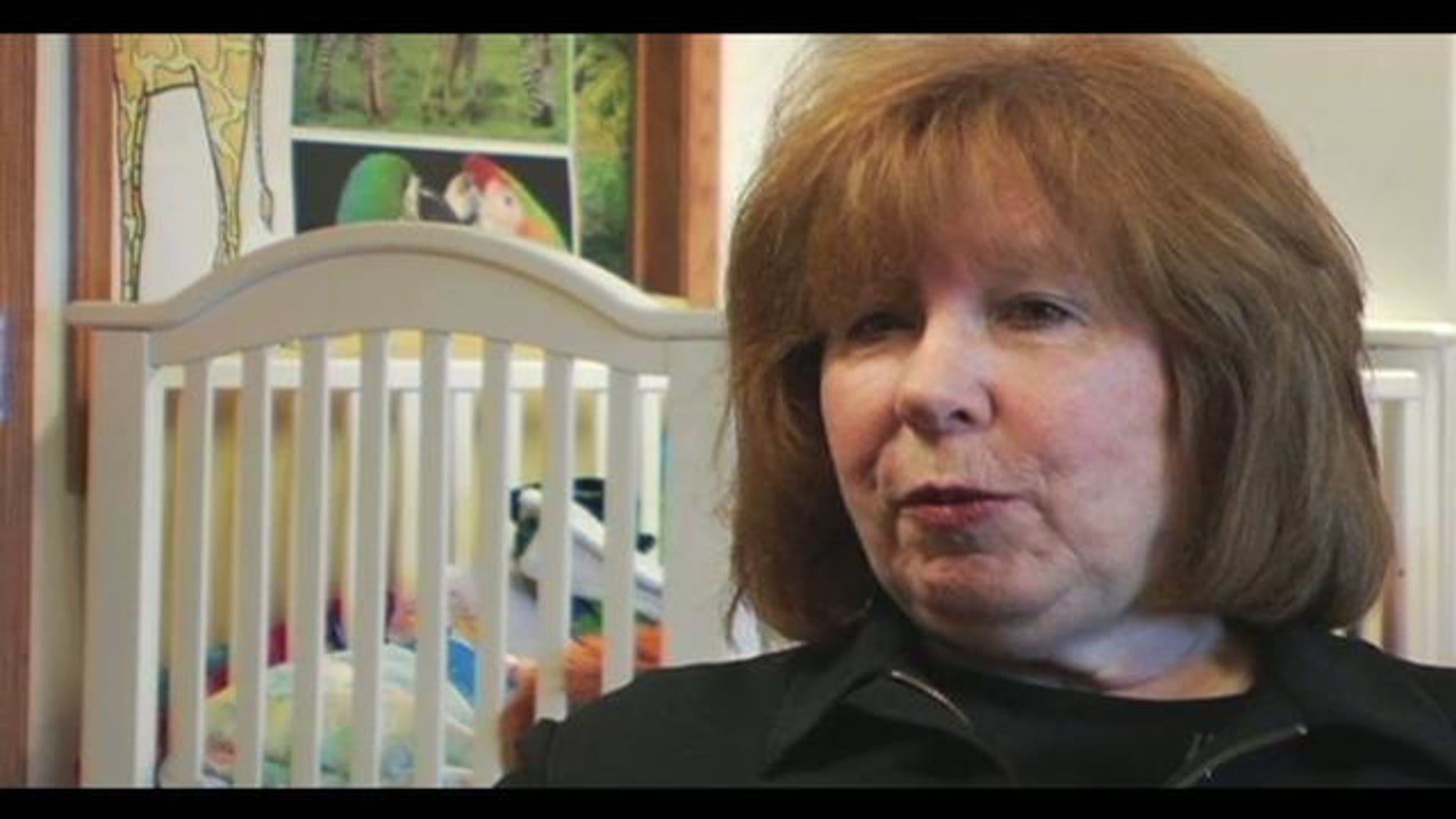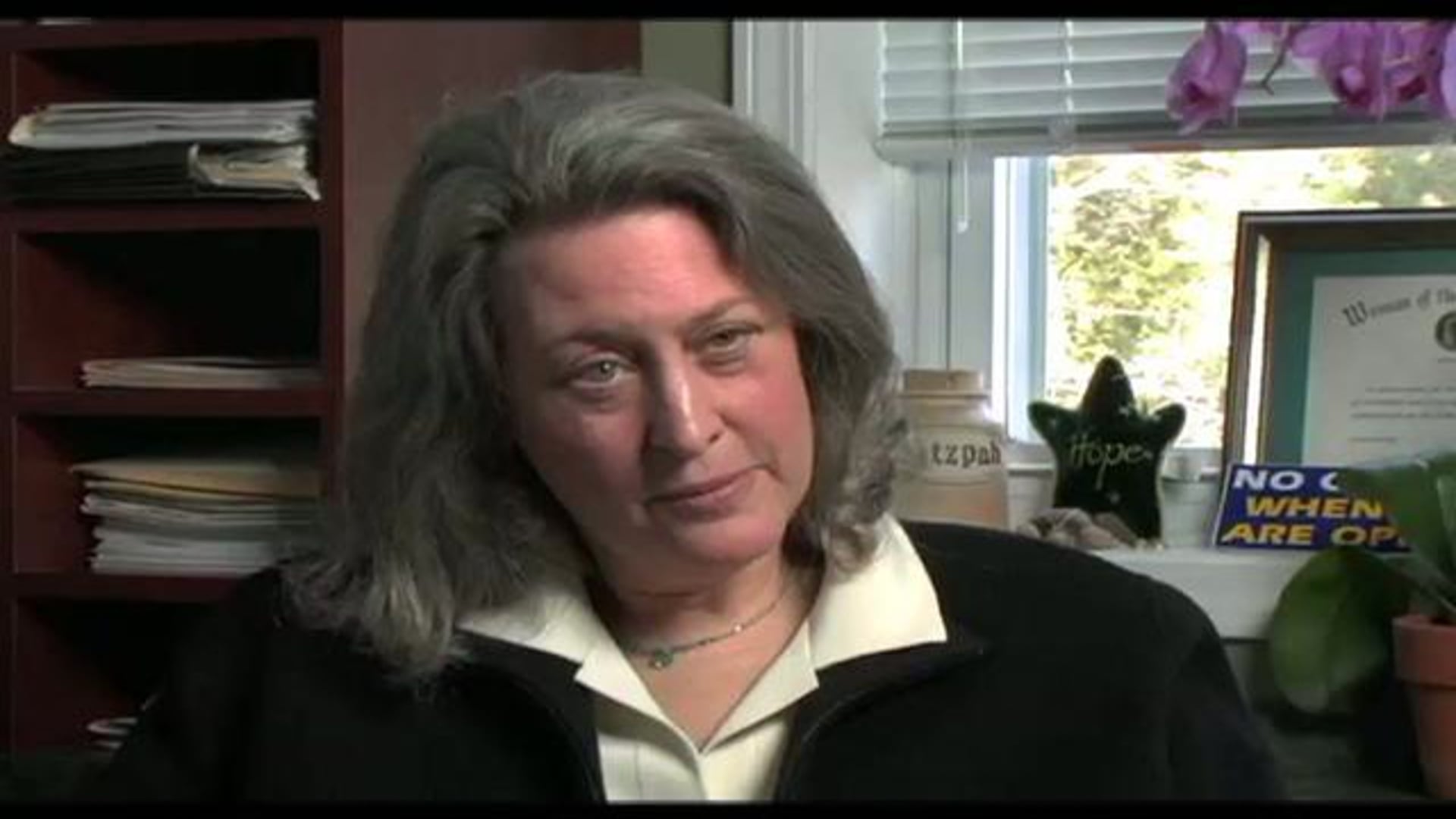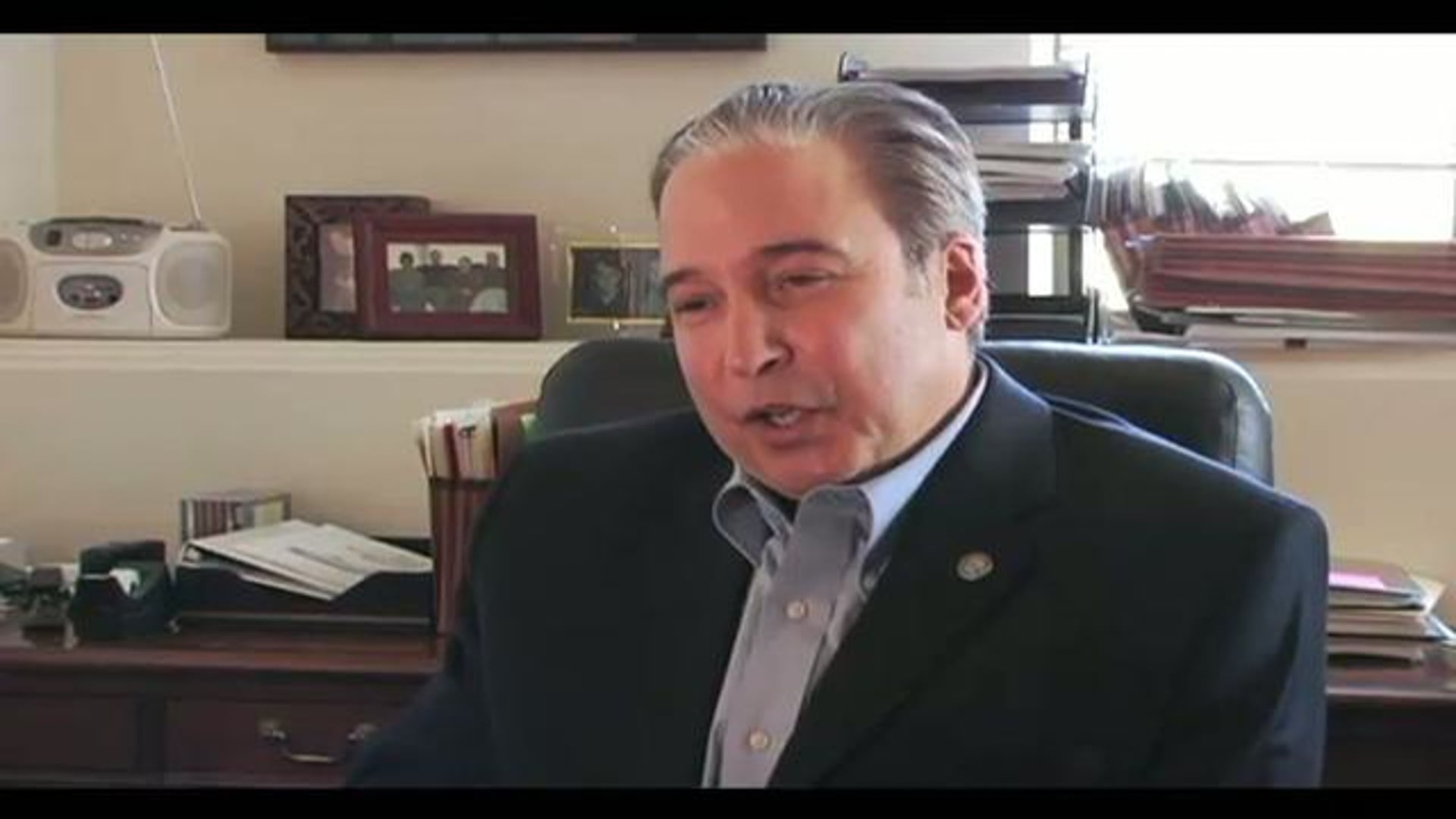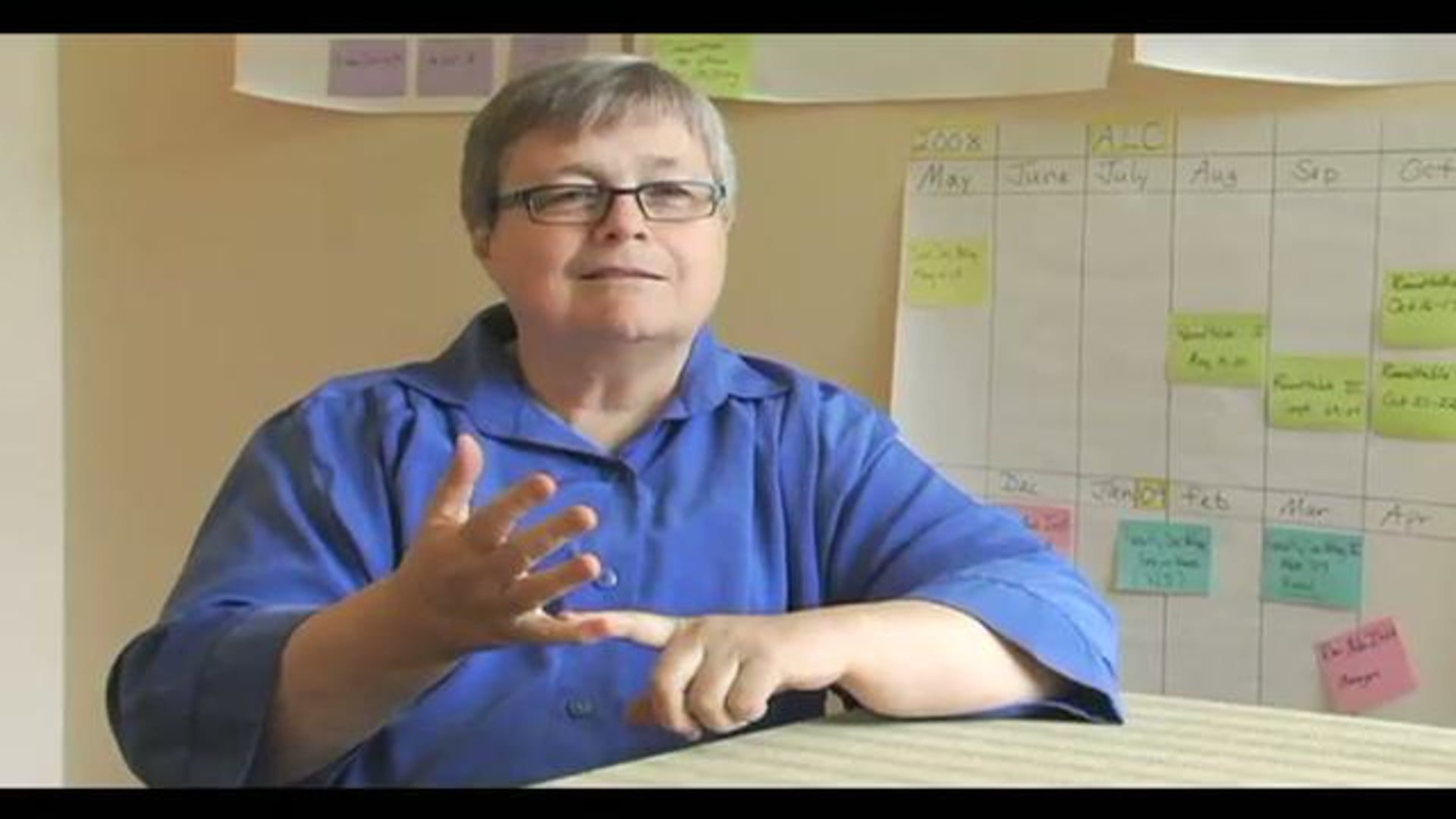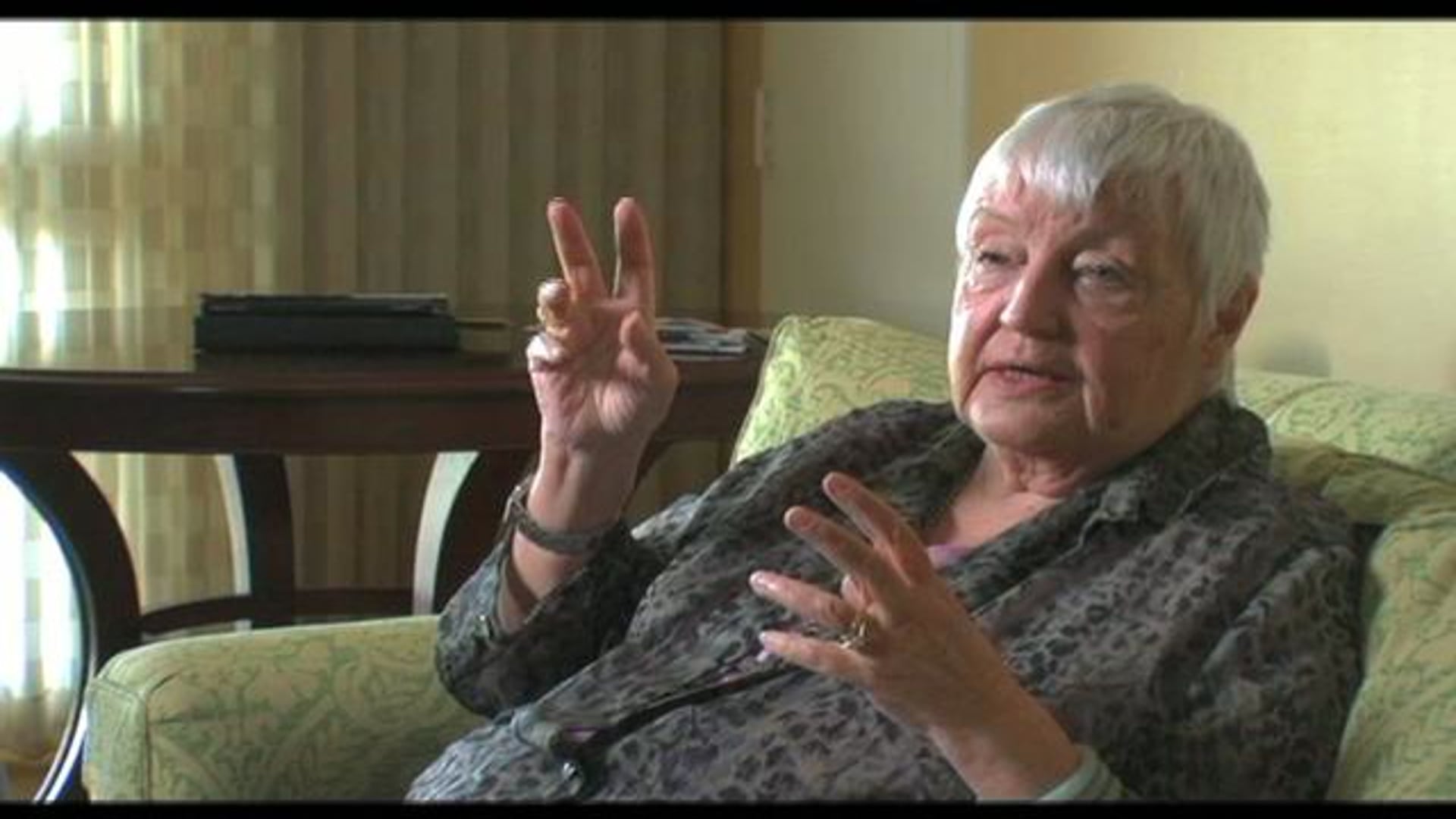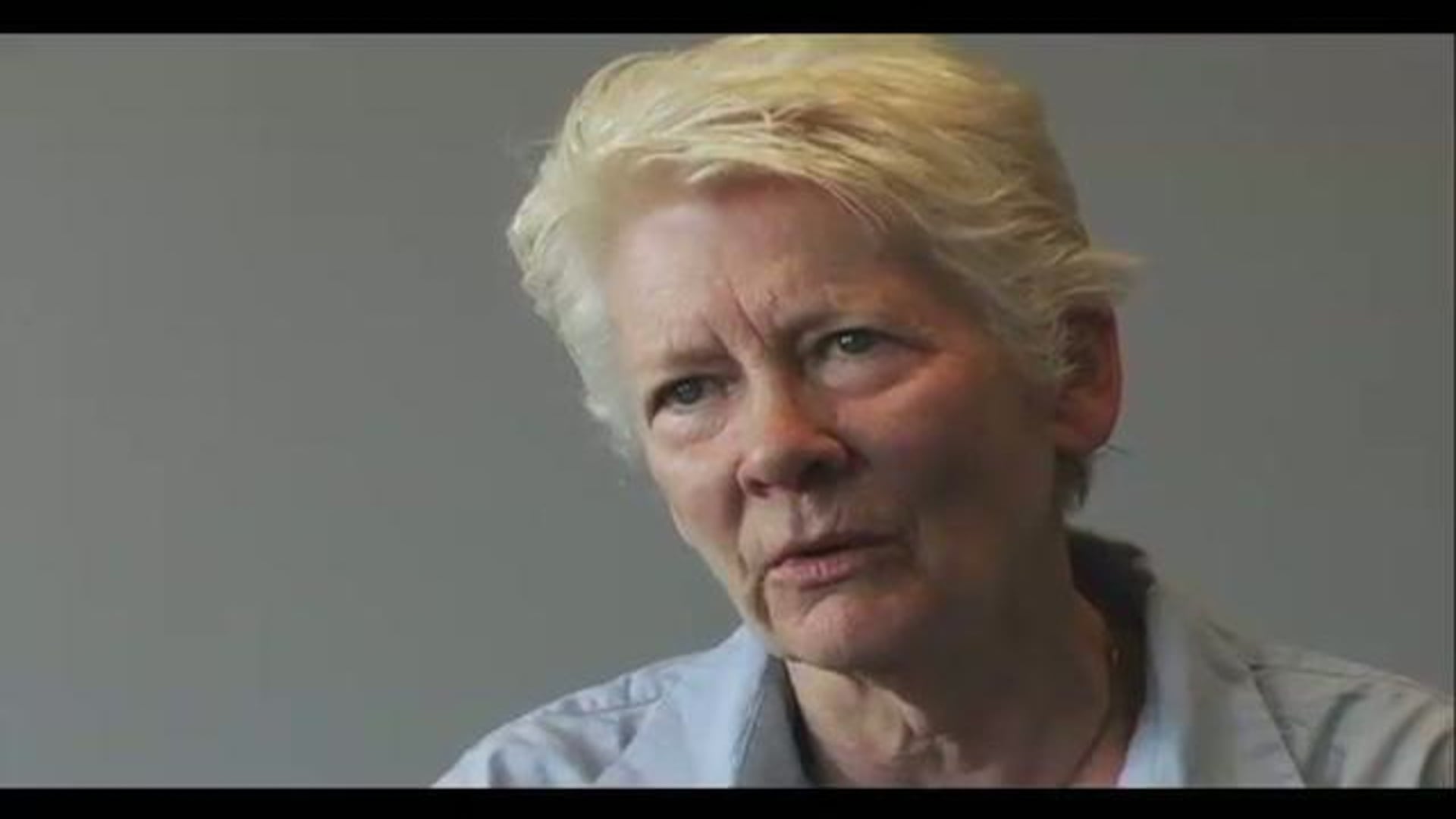Men will be expendable
I was about 31- years-old, 1969-70 actually, and I first began to hear about the women’s movement in England, and I got very much involved in the very early days, and was extremely unsympathetic with the views that I heard there, because it was very radical basically. It was anti- family, it was certainly anti-fathers and boys, and I remember this woman standing there, with, saying to all of us, we were housewives most of us, and of course the new family unit will be women, and children, and men will be expendable and I took an issue with this hugely. Platforms all over England, and eventually I got thrown out, which was probably the best thing that could ever have happened, because I went off into my own streets in Hounslow, and got the council, house of the council, to give my little women’s group a tiny little derelict house, number 2 Belmont Terrace. Had two upstairs rooms, and two downstairs rooms, outside loo, and a kitchen, and we were a little community center, and we could be there with our children during the daytime, which is such a lonely time for women on their own with children and use all our skills and talents.
A little community blossomed
So I’d always had this thing that, I was happily married, and I wanted to be married, but I also wanted to be able to use my talents, but not have to dessert my children. And I foresaw or believed that if women, in those days, the idea was that women would get together, they would share, they would not compete with each other and sisterhood would be powerful. And I thought then we’d be powerful in our own communities, and we were, because as soon as we opened the doors, women who’d never gone to social workers or would go anywhere where there were official authorities, came to us for help. And the little community absolutely blossomed. And then the first woman came in. See I’d never opened a shelter, or refuge. I basically was part of a small group and we were doing this.
Both my parents were violent
And this woman called Kathy came in, and it was very cathartic for me, because for all those years I’d completely tucked away my childhood, I hadn’t even thought about it. And she was standing there, and she just took off her jersey, and she was black and blue from the neck down to her waist. Because he had taken a table, the chair leg, and then he’d beaten her with the chair leg, but he was very careful not to bruise her where anyone could see her. And she said to me, these words, “and no one will help me.” And I remember as a child both my parents were violent, but my mother was physically, particularly violent to me, because I looked like my father and she claimed she hated him. So when she said those words, it just triggered off something in me, and I couldn’t leave her in this little house that night so I took her home to my house, and took care of her. And really in a way it wasn’t a terrible surprise, because she told other people and very soon women were just pouring in through the door.
The group just evaporated
The group that were running the house with me that were interested in the community projects that we were running; were fine with the idea of good gentle women coming in who needed refuge, but it wasn’t like that, because many of the women coming in were very violent themselves. They were violent towards their children and they were very aggressive to everybody, including those people who were most trying to help them. Okay, so those women, the group just evaporated, and it was just basically me and a couple of other women left. I wasn’t concerned about the violence of the women, because my mother was very violent. So it’s a model I very well understood and I also knew how to deal with it.
Violence prone women
Many of the refuges in England, they don’t take women with drug problems. They don’t take them with alcohol problems. Any women who act up, who are slightly violent, are evicted, and these are the women to me that we most need to get to. They’re the ones that most need our help. So very quickly Chiswick became a repository and we basically specialized in the therapeutic community for violence prone women, and if we had a woman come in who was an innocent victim who basically didn’t need the therapeutic community we could then link up with a refuge somewhere else who would offer her what she needed. So it, that’s how it worked, and it worked very well. But what’s happening now everywhere internationally is the women that most need us are being, are not allowed. They are being, they are avoided, and one of the sad things is that if she does try to say, “yes but look I do know that I have this problem,” well she can’t because she has to be a victim. I don’t know about America, but in England in the seventies, there were all these special interest groups that sort of evolved, and women, I never understood why, they claimed they were part of the minority groups, because women are in the majority. So here we were, we’re supposed to be a minority group and we’re all victims. Where I just think its outrageously condescending. I’m not a victim of anybody. I make my own choices. And if I make violent choices, then it’s my responsibility. And that the end of the day is the answer to how you make relationships, why you make them, what you expect from relationships, and that was all part of coming to Chiswick and learning those things. Because like me, I mean if you come from a childhood, it’s a long, long childhood, where all you know is two adults who war and fight and abuse each other what do you expect from relationships thereafter? Not very much actually.


